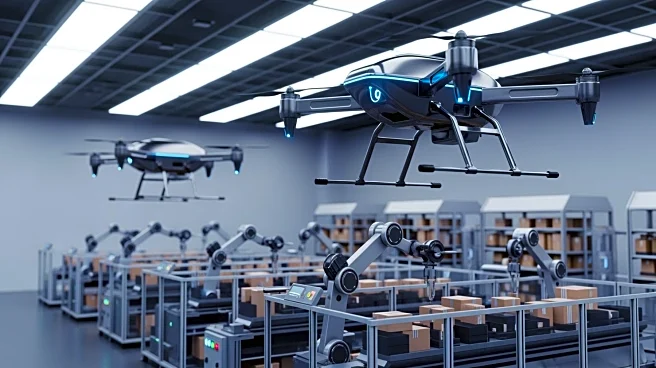What's Happening?
Founded in 1907 by James Casey and Claude Ryan, UPS has evolved from a small messenger service into a global logistics powerhouse. The company expanded its operations significantly, including air delivery
services and international expansion. UPS's strategic decisions, such as the acquisition of Fritz Companies, Inc. for $456 million in 2001, have bolstered its supply chain management capabilities. The company has also invested heavily in technology, developing systems like the DIAD (delivery information acquisition device) to enhance operational efficiency.
Why It's Important?
UPS's growth and technological advancements have positioned it as a leader in the logistics industry, impacting global commerce and supply chain management. The company's ability to innovate and adapt to changing market demands ensures its continued relevance and competitiveness. UPS's investments in technology not only improve efficiency but also set industry standards, influencing logistics practices worldwide.
What's Next?
UPS is expected to continue its focus on technological innovation and strategic acquisitions to enhance its logistics capabilities. The company may explore new markets and services, leveraging its global network to meet evolving customer needs. As e-commerce and global trade continue to expand, UPS's role in facilitating these activities will be increasingly important.
Beyond the Headlines
UPS's commitment to innovation and efficiency has broader implications for the logistics industry, driving advancements in supply chain management and customer service. The company's strategic decisions reflect a forward-thinking approach that prioritizes long-term growth and sustainability.









